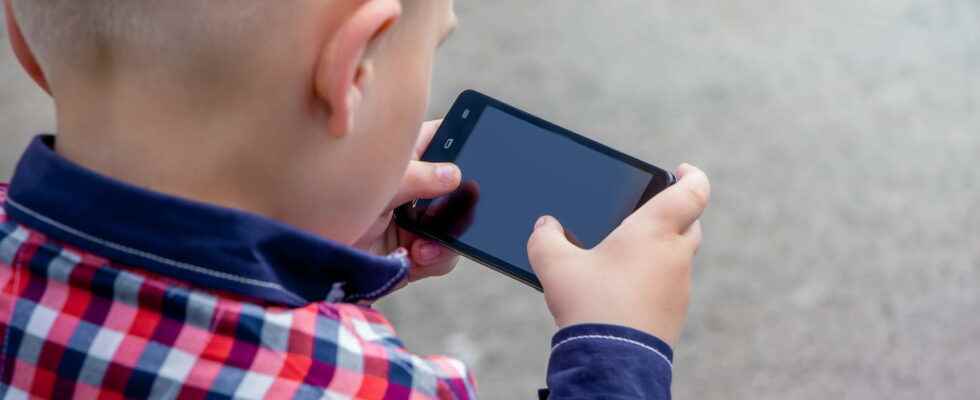3018 app against cyberbullying, parenting campus… What measures can protect children from the dangers of the Internet and social networks? A decree plans to make it compulsory for manufacturers of smartphones, tablets or computers to set up parental controls.
A decree to make parental control mandatory
More and more parents are concerned about the risks taken by their children when they have an activity online, whether on their mobile or the family computer. It is to regulate this activity that the government is currently working on a decree. In application of the law of Renaissance MP Bruno Struder voted in March 2022, it should make it compulsory for manufacturers of smartphones, tablets or computers to set up a parental control. “(This device aims to offer) directly in the settings of each smartphone marketed in France, a simple device to control the time spent on the screen, but also the content visible or downloadable on the mobile Internet “explained Jean-Noël Barrot, the Minister for the Digital Transition, to the Parisian.
What is the Digital Parenting Campus?
On February 7, 2022, Adrien Taquet announced the launch of the first digital parenting campuses. Since September, many campuses have been organized each month throughout France by associations which address subjects such as the first steps with a smartphone, the use of social networks, excessive consumption of screens, the protection of personal data the child, cyber-harassment or problems related to minors’ access to pornography. In total, thousands of parents will be offered free training each year.
A program to help families manage screens
Result of a collaboration between the “Internet without fear” program and the Mildeca (Interministerial Mission for the Fight against Drugs and Addictive Behaviours), the program FamiNum.com is offered on the internetsanscrainte.fr website. Families must first complete a questionnaire in order to define their profile (number of people in the household, age of its members, etc.) and their priorities such as “reducing time spent in front of screens” or “avoiding conflicts around screens”. They then obtain recommendations accompanied by explanations and advice on how to apply them easily. Families can then develop their own screen use charter and can receive challenges by email for 6 weeks to achieve their goals.
Safer Internet Day: what is it?
Safe Internet Day exists since 2004. Since then, this day is organized in 150 countries different and coordinated in the hexagon by Safe Internet France. Safer Internet Day is for students, families, and education and child protection professionals. The goal? Give keys to understanding and concrete advice to protect children from harm.angers of the web, without prohibiting them from accessing it. Concretely, this day is each year the opportunity to provide support tools to children on their use of the web and to train in “parenting digital“. The latter consists of educating your children in good web practice. The training gives keys to approach the subject with them, and explains to you which clear rules to pose according to the age of the child. For example, Safer Internet Day offers concrete tips for settings to better secure the use of screens and social networks. In addition, there are many French programs and associations, which fight tohelp young people to surf the web without falling into the traps that the web hosts. The national Internet Without Fear awareness programme, works with “Net Listening“the national toll-free number for advice and assistance to young victims and parents. The Point de Contact platform, dedicated to reporting illegal content online, is also taking part in this initiative. To access it, you will have to register on the Internet platform without fear.
Why a “Safer Internet Day”?
Many children are victims of cyberbullying, the news continues to alert us to the tragedies it can cause. The Covid and successive confinements have increased digital habits. The use has been diversified: for school purposes, to ensure educational continuity, for their leisure of course, but also to communicate with family and friends at a distance. For teenagers too, screen time has multiplied, exposing them ever more to potential hateful content. For these reasons, we must continue to raise awareness about the right way to use the Internet when you are a child or a teenager.
Exposure of children to pornography is also a topic of concern to the government. In fact, nearly one child in three has already been exposed to X sites, most of the time accidentally. If the websites in question have the mission of better verifying the age of users, “parents must be made aware of this issue. I think that parents do not realize how much and how easily their children are exposed to these pornographic contents” explained Adrien Taquet. To support parents and give them the necessary tools to set up parental control, for example, the Secretary of State in charge of Children and Families as well as Cédric O, Secretary of State in charge of the Digital Transition and Electronic communications launched the site jeprotegemonenfant.gouv.fr in 2021.
